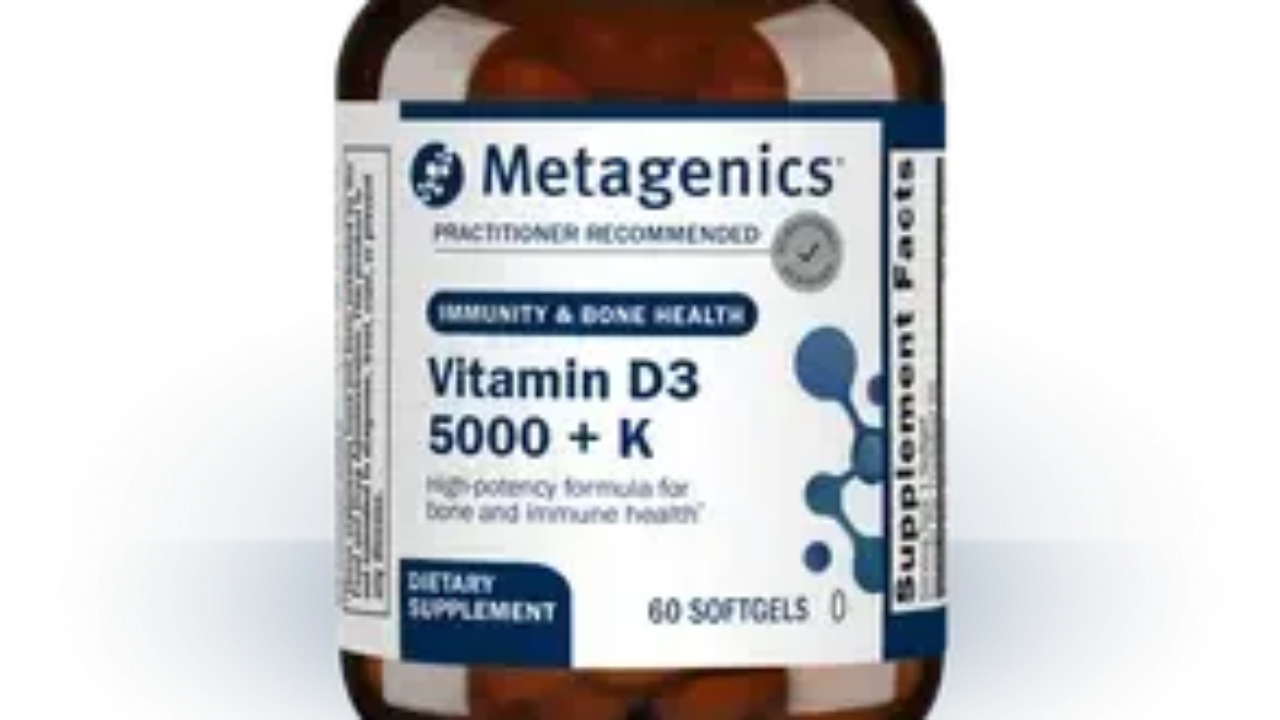
The Critical Role of Vitamin D In Your Health
Vitamin D is one of the most underrated nutrients in modern healthcare, yet it plays a profound role in immunity, inflammation, hormone balance, metabolism, mood, and the prevention of long-term diseases.
For women, especially those navigating autoimmune diseases, thyroid imbalances, fatigue, stubborn inflammation, or recurrent infections, vitamin D is foundational.
I’ve seen this clinically time and again in my practice, and my PhD research has confirmed it.
In my dissertation, I studied the relationship between vitamin D levels and inflammation in women diagnosed with Hashimoto’s thyroiditis. The results were compelling:
Women with higher vitamin D levels had significantly lower levels of CRP, a key marker of systemic inflammation.
This aligns with what functional and integrative medicine has known for years:
Vitamin D is not just a “bone vitamin”; it is an immune-modulating hormone that directly influences autoimmune activity, inflammation, and metabolic health.
Let’s break it down.
Why Vitamin D Matters So Much More Than You Think
1. Vitamin D is an immune modulator
Your immune cells, T cells, B cells, and dendritic cells all have vitamin D receptors. This means vitamin D directly affects how your immune system behaves, including:
-
dampening autoimmune overactivity
-
calming inflammatory cytokines (IL-6, TNF-α)
-
increasing regulatory T-cells that protect against autoimmune damage
This is one of the key findings supported across the research literature, and reinforced in my own study of women with Hashimoto’s.
Findings from my Dissertation:
2. Vitamin D deficiency drives inflammation
Low vitamin D levels are associated with higher CRP and elevated inflammatory cytokines. My research specifically found an inverse correlation:
The lower the vitamin D, the higher the inflammatory activity.
This matters because inflammation is the root accelerator for:
-
autoimmune disease
-
thyroid dysfunction
-
hormonal symptoms
-
metabolic resistance
-
cardiovascular disease
-
depression + anxiety
3. Women are uniquely vulnerable
Women experience hormonal shifts throughout their lifespan that alter vitamin D metabolism and immune function. Estrogen enhances vitamin D receptor activity, making optimal vitamin D even more crucial for individuals during perimenopause, and later during menopause when estrogen levels drop.
4. Vitamin D impacts thyroid autoimmunity
Research consistently shows that vitamin D deficiency is prevalent in women with Hashimoto’s, and improving vitamin D can:
-
reduce thyroid antibody activity
-
calm inflammatory cytokines
-
support thyroid tissue resilience
-
improve fatigue and metabolic function
Multiple interventional studies show improvements in inflammatory markers with supplementation, including significant reductions in CRP.
Why Many Women Are Deficient (Even When They “Get Sun”)
There are several modern factors working against us:
-
indoor lifestyles and office jobs
-
sunscreen blocking vitamin D synthesis
-
living above certain latitudes (NYC included)
-
hormonal birth control
-
gut issues affecting fat absorption
-
Darker skin tones reduce vitamin D conversion
-
hypothyroidism + autoimmune disease altering metabolism
This is why so many women I assess, even in sunny regions, present with levels in the 20s or low 30s.
What Level Should You Aim For?
In functional medicine, optimal vitamin D typically falls between:
70–80 ng/mL
In my dissertation research, women with levels ≥70 ng/mL had the lowest inflammation levels and significantly reduced CRP.
This is not a coincidence. Vitamin D’s immune-regulating effect is dose-dependent.
How to Supplement Safely
There is no one-size-fits-all dose, but most women require more than the standard 600–800 IU.
General guidance (not medical advice):
-
Low levels (<30 ng/mL): 5,000 IU/day (sometimes higher under supervision)
-
Moderate levels (30–50 ng/mL): 2,000–5,000 IU/day
-
Optimal maintenance (50–80 ng/mL): 1,000–2,000 IU/day
Vitamin D should be taken with:
-
fat-containing meals
-
Vitamin K2 (often included in high-quality formulas)
-
Magnesium for proper activation
I always advise clients to test levels every 3–4 months to ensure dosing is appropriate.
My Recommended High-Quality Vitamin D (Fullscript)
I’ve curated pharmaceutical-grade vitamin D options through my Fullscript dispensary so you’re getting clinician-trusted, third-party tested supplements.
My favorite vitamin D supplements are all available in my Fullscript Dispensary! (You also get a discount!)
👉 Access my Fullscript Dispensary, where you can get medical-grade supplements offered at a discount!
Inside, you’ll find:
-
Vitamin D3 + K2 blends
-
High-dose D3 for deficiency correction
-
Vegan vitamin D options
-
D3/K2 with magnesium combinations
These are the same formulas I use in clinical practice with patients who are working to reduce fatigue, autoimmune flares, inflammation, and hormonal imbalances.
Who Benefits the Most from Vitamin D Optimization?
Women dealing with:
-
autoimmune disease (Hashimoto’s, psoriasis, RA, IBD)
-
chronic inflammation or elevated CRP
-
hormonal imbalances
-
PCOS
-
infertility or recurrent miscarriages
-
long-term fatigue
-
depression or anxiety
-
insulin resistance or prediabetes
-
gut issues or malabsorption
…often see dramatic improvements when vitamin D is optimized.
The Bottom Line
Vitamin D is one of the simplest, safest, and most cost-effective interventions available — and yet it is often overlooked in conventional care.
My PhD work reinforces what I see every day in practice:
✨ Optimizing vitamin D levels is one of the fastest ways to reduce inflammation, support thyroid health, and improve how you feel day to day.
✨ And for women with autoimmune or hormonal issues, it’s essential.
If you haven’t checked your levels recently, this is your sign.
👉 Explore my curated Fullscript Dispensary here:
Your immune system and your future health will thank you.

